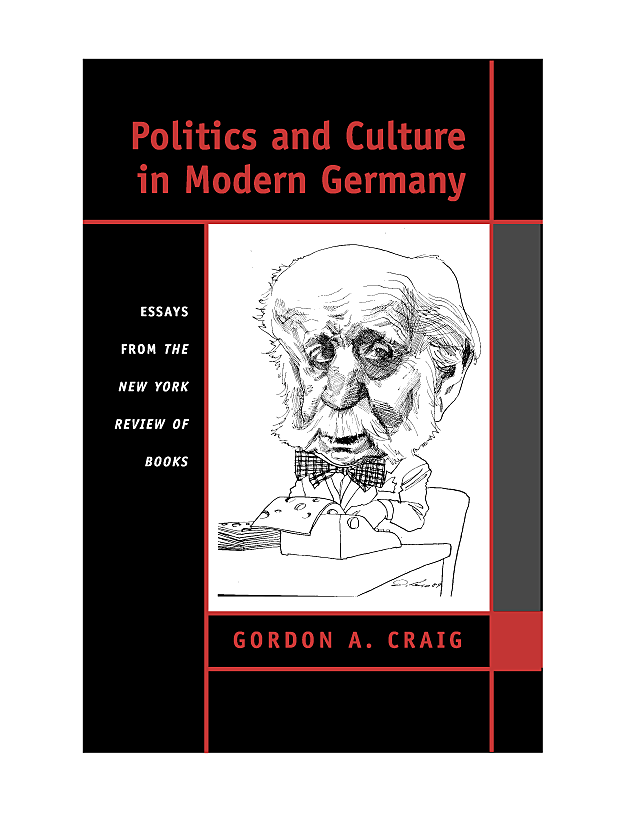
![]()
"These thirty essays discuss a remarkably wide range of books about German politics and culture from the eighteenth century to the present. It would be hard to imagine a better guide to this literature than Gordon Craig. At once a careful reader and a generous critic, Craig brings to the reviewer's task a long lifetime of learning and experience. But these essays are much more than book reviews. They provide the occasion for Craig's own reflections on the problems that have occupied him throughout his distinguished scholarly career: the rise and fall of Germany as a great power, the accomplishments of Otto von Bismarck and the failures of Emperor William II, the catastrophe of Nazism and the perplexing personality of Adolf Hitler, the complex and ultimately tragic relations between Germans and Jews, and the extraordinary rebirth of German democracy after 1945. Craig is a formidable stylist, who can weave together political analysis, historical anecdotes, and literary allusions with great grace and clarity. Serious without being ponderous, he manages both to delight and instruct us. . . . With this book on their shelves, Craig's admirers can finally discard their tattered clippings from The New York Review of Books. Those who read these essays here for the first time will swiftly understand why Craig is regarded as the dean of American historians of modern Germany."
—James J. Sheehan, Stanford University
This book is a collection of thirty essays by the distinguished historian Gordon A. Craig, which appeared originally in The New York Review of Books. They are presented in rough chronological order and are arranged in four parts. The first of these has essays on the political history of Germany from 1770 to 1866, on new Bismarck biographies by British, American and East German historians, on the reign of William II as seen by the novelist Heinrich Mann and the sociologist Max Weber, on Germany and the First World War, on the architects Karl Friedrich Schinkel and Gottfried Semper, and on Thomas Mannís diaries and new biographies.
The second part concentrates upon the Third Reich, its political history, the nature of daily life in the Nazi years, the role of women in the Nazi party, the Leader and his paladins Goebbels and Speer, his foreign policy and the coming of the war, and varieties of resistance to Nazism before and during the war.
Part Three has essays on the history of Jews in Germany in the nineteenth century, the story of the Rothschilds, Georg Hermannís much loved novel of Jewish life in Berlin in the 1830ís, Jettchen Gebert, and the daily life of Jews in the years of persecution as described in Victor Klempererís remarkable diary.
The last part deals with the reemergence of political life after Hitlerís fall, the history of the Bonn Republic, and the long road to reunification. It includes essays on the cultural history of Berlin and the cityís role in the conflict between east and west, as well as on the continuing struggle with the past, described by Jane Kramer as the Germansí "excruciating process of connecting the kind of people they thought they were to the people they had been and the people they wanted to be."
The late Gordon A. Craig was the J. E. Wallace Sterling Professor of Humanities in the History Department at Stanford University. His books on German history include The Politics of the Prussian Army, 1640–1945 (1955), The Battle of Koniggratz (1964), Germany, 1866–1945 (1978; winner of the Historical Prize of the City of Munster in 1982), The Germans (1982), The End of Prussia (1984), The Politics of the Unpolitical (1995), and Theodor Fontane: Literature and History in the Bismarck Reich (1999). He was a member of the German Federal Republicís Orden Pour le Merite fur Wissenschaften und Kunste, and winner of the first Benjamin Franklin–Wilhelm von Humboldt Prize of the German-American Academic Council (1999).
400 pages. Cloth and paperback. 1999.
Cloth ISBN 0-930664-21-3
Paperback ISBN 0-930664-22-1